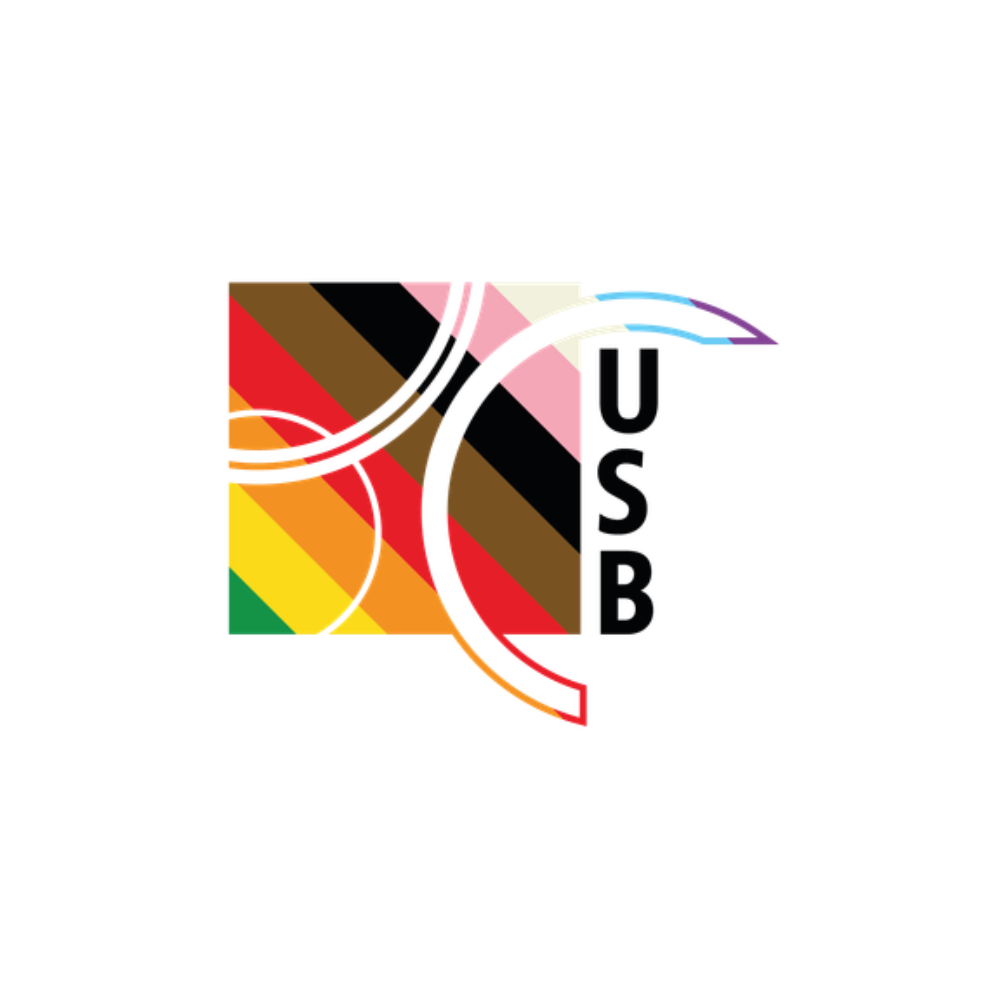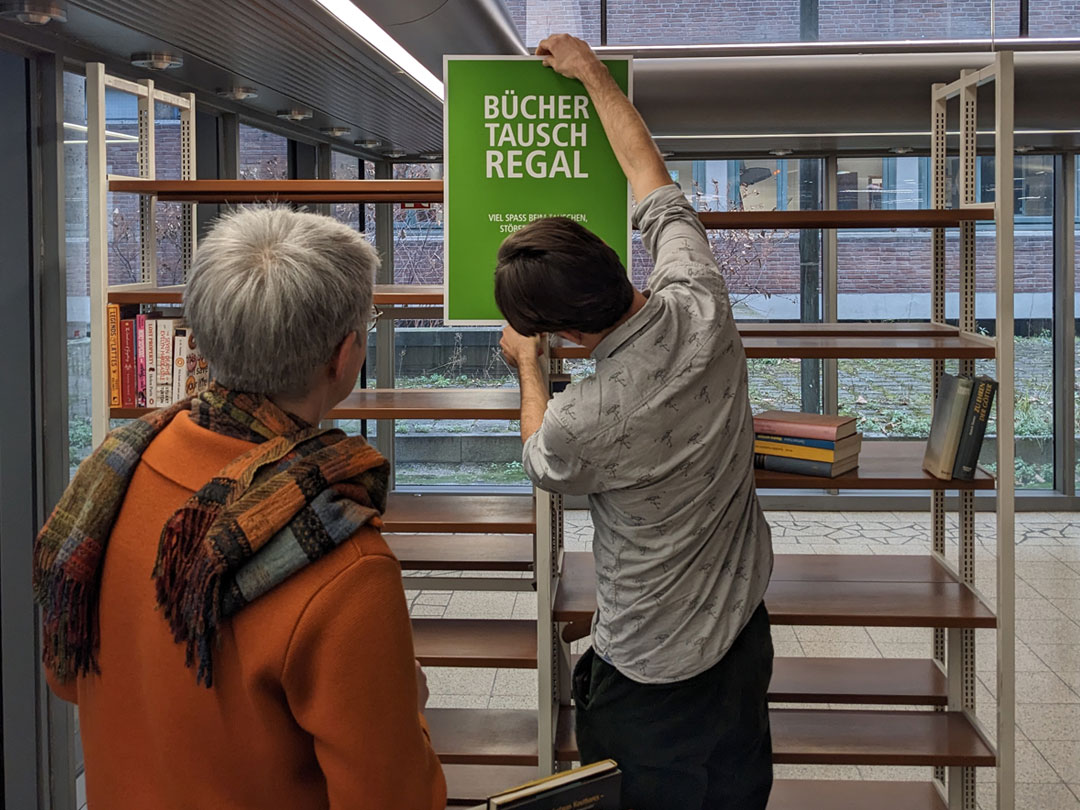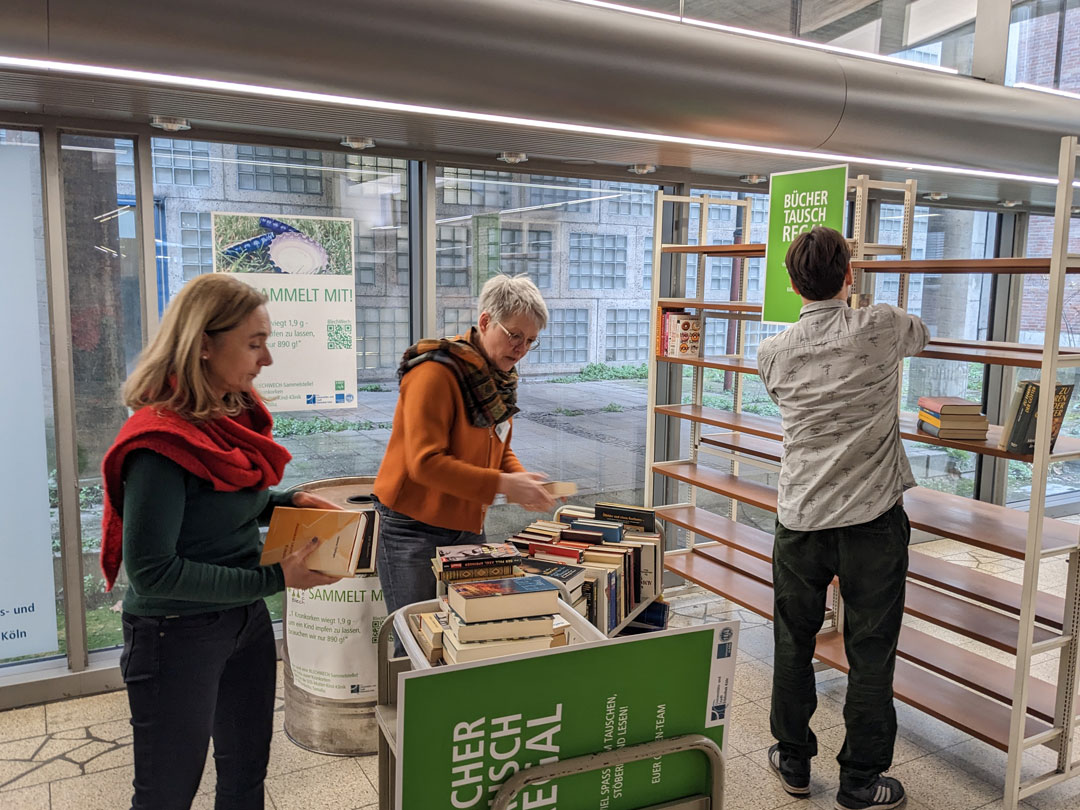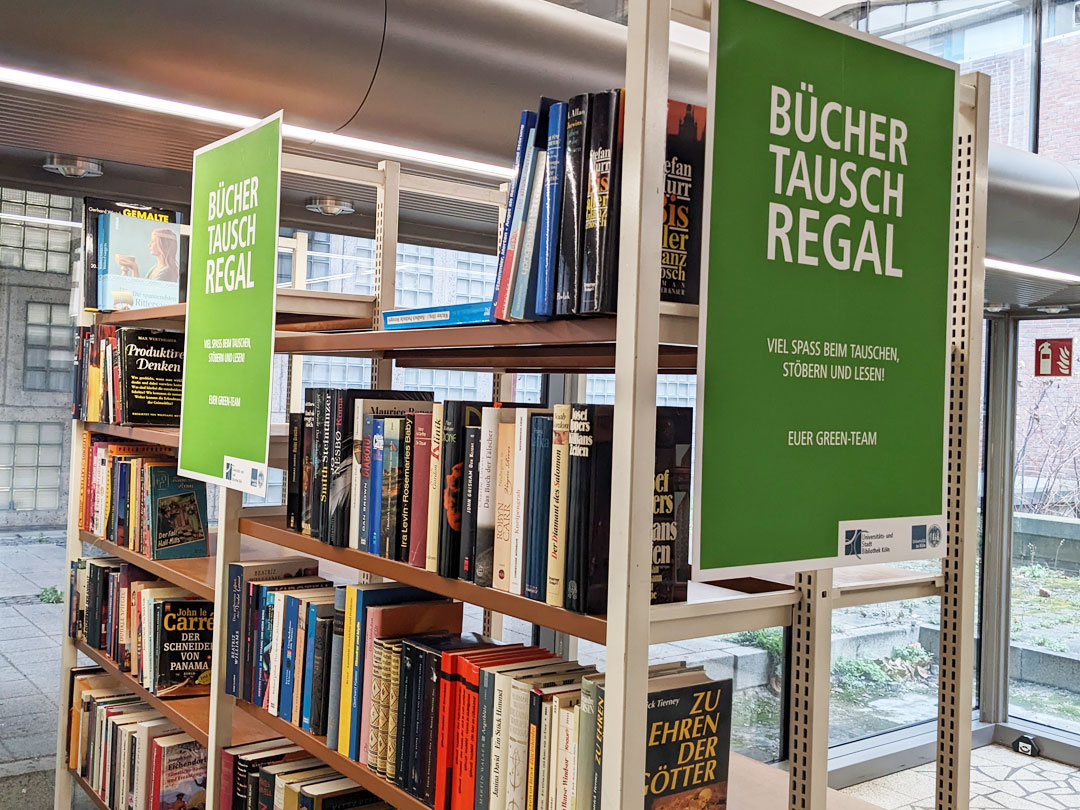CLIMATE CLOCK and AGENDA 2030
CLIMATE CLOCK
The CLIMATE CLOCK counts every second how much time the global community has left to meet the goal of the Paris Climate Agreement of 2015 and to limit global warming to 1.5 or a maximum of 2 degrees.
The CLIMATE CLOCK was developed by the Mercator Research Institute on Global Commons and Climate Change (MCC) and shows the total amount of greenhouse gas that the world is still allowed to emit in order to limit global warming to well below two degrees compared to pre-industrial levels. The CLIMATE CLOCK is not a real-time instrument that automatically visualises real emissions!
If the relevant factors change, the scientists at the MCC readjust the CLIMATE CLOCK, e.g. if the Intergovernmental Panel on Climate Change arrives at a new result in its budget calculation.
(Source: https://climateclock.world/)
Activities in 2024
24 April 2024: Spring cleaning
Your uni. Your library. Let's clean up!
Our outdoor area, which is supposed to be a green place for rest and relaxation, is unfortunately littered with rubbish, cigarette butts and bottle caps every day. We clean our grounds regularly, but we simply can't keep up with the rubbish problem.
More information about spring cleaning >>
Activities in 2023
August 2023: Crown cork collection in the UCL foyer enables 1,835 vaccinations
Since 2021, you have collected an impressive 1,303.235 kilograms of crown caps in our bin in the foyer, which has resulted in a total of 1,835 vaccinations being financed! MANY THANKS TO ALL COLLECTORS!
A big thank you also goes to Dr Alexandra Lennartz! She regularly collects your crown caps from us in person. Alex Lennartz and her dedicated team from the Blechwech Foundation have been collecting "crown caps for a good cause" since 2018. With the proceeds from 84.062 tonnes of bottle caps, they have so far been able to provide a total of 114,841 vaccinations - first in Liberia and now in Somalia.
More information about the Blechwech Foundation >>
January 2023: Book exchange shelves in the foyer
Book exchange shelves in the foyer: from now on you can swap books!
We have recently put up book exchange shelves in our foyer. Our UCL colleagues started by filling the shelves. Now it's up to everyone: Do you also have books at home that you no longer need, but which could be interesting for others? Then we would be happy if you swapped them!
The principle is simple: the shelves are in the foyer, accessible to everyone. If you like, you can take books out, if you like, you can put them in: free of charge, without obligation, free of formalities.
Have fun swapping, browsing and reading!
31. Januar 2023
2030 Agenda - Sustainability in libraries
In 2015, the 2030 Agenda was signed by all UN member states. It comprises 17 goals and is considered a milestone of global cooperation. The aim is to achieve economic progress in harmony with social justice within the Earth's ecological limits. As a university library, we contribute to these goals.
Our contribution to Agenda 2030
Our contribution to Agenda 2030
In 2015 the Agenda 2030 was signed by all UN member states. It comprises 17 goals and is considered a milestone of global cooperation. The aim is to achieve economic progress in harmony with social justice within the ecological limits of the earth.
As a university library we contribute to these goals.
ENSURE A HEALTHY LIFE FOR ALL PEOPLE OF ALL AGES AND PROMOTE THEIR WELL-BEING
You can search the holdings of ZB MED - Information Centre for Life Sciences via our portal. Databases and e-journals on medicine can be located by clicking on Search in your subject area - Medicine >>
ENSURE INCLUSIVE, EQUITABLE AND QUALITY EDUCATION AND PROMOTE LIFELONG LEARNING OPPORTUNITIES FOR ALL
With our information resources and services, we are committed to the goal 4: QUALITY EDUCATION and make a major contribution to this goal. This is made visible by these examples, among others:
- We regularly offer Coffee Lectures that cover all areas of academic work. The events take place via Zoom and are recorded. This means that our users can also watch the courses afterwards and benefit from the learning content. So since 2022 it's been "33 minutes for ..." >>
- Our service for scientists at the University of Cologne: We support research projects in the area of data management. For all those who are planning to publish their research results, we have tips and contact information on where you can publish online or establish an Open Access journal with your institute. Research & Publishing >>
- We offer online research courses. Online research courses (German) >>
- Our YouTube videos give you an overview of our library, tips on research and how to use e-books. With the audio tour you can explore the library on your own. Audio tour and info films >>
- Students and staff of the University of Cologne can access about 14,000 learning videos. Authentication is done via the Regional Computing Centre (RRZK) of the University of Cologne >>
BUILDING A RESILIENT INFRASTRUCTURE, PROMOTING INCLUSIVE AND SUSTAINABLE INDUSTRIALIZATION, AND SUPPORTING INNOVATION.
- IT services contribute to environmental and climate protection through the digitalization of the working world and the virtualization of workplaces through a Citrix environment, as joint working becomes possible despite different locations.
- The procurement strategy for new hardware is geared as far as possible to criteria of resource conservation and energy efficiency. Equipment that is no longer needed is disposed of in an environmentally friendly manner or made available for external reuse.
- In the operation of IT systems, attention is paid to energy- and resource-saving implementation. This includes shutting down systems that are not currently needed, virtualizing systems, switching to cloud solutions that are operated in energy-efficient data centers, and outsourcing the server infrastructure to modern, energy-saving data centers in the medium term.
- The applications implemented in the USB are made available to the community as open source developments. For example, the open source software OpenBib, which is behind the research infrastructure KUG and is publicly available for reuse in github.
REDUCE INEQUALITIES WITHIN, FROM AND BETWEEN COUNTRIES
- Our numerous activities in the field of Open Access contribute to the promotion of unhindered access to scientific information. Open Access publications are also freely accessible in countries that cannot afford to provide access to paid literature - as long as the necessary technical infrastructure is in place. Open Access at a glance >>
- Through our collection portals, we are increasingly receiving inquiries from researchers from abroad. In this way we contribute to international research support. Collections & Specializations >>
- In cooperation with the Servicezentrum Inklusion, we digitise books, learning materials and scripts, to make them readable for visually impaired students. Knowledge that matters. We make books readable >>
- We issue free library cards to people on low incomes. Annual fee library card >>
- Our parent-child room on the 1st floor makes it easier for students with children to learn in the library. It is furnished with a breastfeeding chair, play carpets, a KidsBox, bouncing animals, blackboard & crayon and much more. In addition, the library is equipped with four workstations with electricity. Place to learn - parent-child room >>
MAKING CITIES AND SETTLEMENTS INCLUSIVE, SAFE, RESILIENT AND SUSTAINABLE
Libraries are trustworthy institutions that provide a basis for cultural inclusion and communication that promotes mutual cultural understanding.
- With over 80 collection portals, we document, digitize and preserve cultural heritage for future generations. Collections & Specializations >>
- Within the scope of our provenance research, we try to clarify the origin and the changing ownership of our historical stock, to register it nationwide and to restitute it in the case of Nazi looted property. Researching, registering and restituting provenances (German) >>
- We offer numerous exhibitions, lectures and panel discussions in evening events. We have thus become a cultural centre for students and members of the University of Cologne and also for interested citizens of the City of Cologne. Exhibitions & Lectures >>
- hanks to our large historical stock, museums and documentation centres direct loan requests to us. If there are no conservational reasons against it, our books go on a journey >>
ENSURE SUSTAINABLE CONSUMPTION AND PRODUCTION PATTERNS
- We have a large amount of literature on the topic of sustainability and thus support research and teaching in this area. Finding & Borrowing in the UCL-Portal >>
- As a lending library with 40,000 registered users, over 900,000 loans (print media only) and more than 4 million e-books, approx. 150,000 e-journals and approx. 1,650 databases, we act in a sustainable manner.



